A Mini-Interview: Mercedes Bunz explains meson press
meson press’ first book, Rethinking Gamification (PDF), was just released in Lüneburg. Part of the Hybrid Publishing Lab at the Leuphana University, the press focuses on digital culture and network media with the aim to “challenge contemporary theories and advance key debates in the humanities today.” I was interested in inviting one of the representatives of the press, Mercedes Bunz, to share in the style of some earlier mini-interviews I have conducted what she sees as the stakes in coming up with a multiple-format publishing house that focuses on theory.
Most of scholars are increasingly frustrated with the dinosauric habits of big academic publishers, but how to establish alternatives in the academic world that is challenged both by the necessity of new formats and by the only slowly changing recognition systems of the academic world?
The burning questions in publishing seem to be about the changing media ecology of academia of which publishing is one part – and inherently connected to institutional settings and subject-positions.
In other words, the question posed to Bunz: 
“What and why is meson press as a theory publishing project and does it connect with the wider question of the “post-digital scholar?”
Mercedes Bunz: “You are right: publishing itself gets profoundly questioned by digital media, it isn’t just that digital media is an exciting field for theory because it never stands still.
The interesting thing: while we all know that within publishing there is “disruption”, oddly enough this doesn’t necessarily mean that there will be change. It might be true that technology offers alternative ways of publishing. However, reputation management and academic recognition systems stand in the way and ensure that nothing changes. Thus, the situation we find ourselves in is slightly mad: technically there are many ways to publish and share intelligent thoughts by now. However, young academics can’t use those alternatives because then their book a) can’t find its way into academic libraries which means b) they don’t get cited, or c) the book isn’t recognized for their CV. For all of that it still needs an approved publisher. Our technical super-connected, post-digital world is left helpless.
Of course, one can’t accept this.
meson press works its way through this situation. Naturally as academics who are also media scholars, we are quite interested in exploring the question: What chances are there in digital book production for theory debates? Our answer so far is the following: We publish open access, and this makes books easily findable and pushes citation. Also we foster the findability of our books regarding search engines and catalogues, and take marketing quite serious. However, the most important difference in my opinion is the conceptual understanding of what this is: a book.
Similar to Mattering Press, or Christopher Kelty’s scholarly magazine Limn http://limn.it/ our publishing project is an academic cooperative: from academics for academics. This means in our view, a book becomes a place to meet and debate, similar to a lecture, a workshop, or a seminar. Editing a book was always a starting point for a discussion, copy-editing was always a way to connect or disagree. It is this tendency which now needs to be further amplified. In other words, we take quality assessment very serious and try to turn it into a concept: A book isn’t just a product that starts a dialogue between author and reader. It is accompanied by lots of other academic conversations – peer review, co-authors, copy editors – and these conversations deserve to be taken more serious. In a post-digital world one needs to understand that a book is a process that gives good reason to meet in person. Formats like book sprints have lead the way. Wendy Chun has also inspired us to create a writing group in which we constructively discuss a non-completed essay or chapter.
So I suppose this is how meson press connects to our situation as post-digital scholars. As a publishing house which is also a publishing project, we focus on the book as a form of communication, and this communication is an important part of its production. This is a way to optimize its task: to intervene, and challenge (which is not an easy task in our neoliberal societies). But we like the humanities, and we like them alive and kicking.
If I may give you a little overview of our upcoming publishing projects: After”Rethinking Gamification” we will publish two forgotten classics: The first will be by the Greek-French philosopher Kostas Axelos “On Marx and Heidegger”, which is edited with great care and expertise by Stuart Elden. We are very interested in Axelos’ take on technology and alienation. The second will be by Antonia Caronia “The Cyborg”.
Also we are very proud that Yuk Hui and Erich Hörl have started editing the series “After Simondon” with us, and we are preparing two edited collections “Diffracting Kittler: German Media Theory and Beyond” and “Critical Keywords for the Digital Humanities”.
Sorry, but may I end this little interview with an appeal? If anyone has an idea for a thrilling book proposal in the context of digital culture and media studies, please send us a short trenchant abstract and chapter overview to: mesonpress@hybridpublishing.org.”



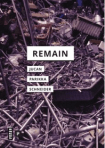
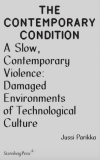




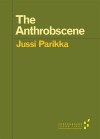



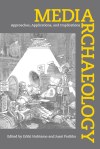

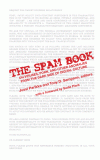

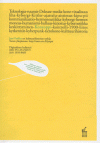
Very interesting. My next question for Mercedes would be: is the fact that your next two books fall into the category of “forgotten classics” a deliberate strategy? It indeed seems to me that forgotten classics offer a number of very obvious advantages, probably the most important of which are to allow young digital presses to attract attention from researchers and accrue credentials vis-à-vis institutions by publishing works that have already been recognised as having high scientific value.
Good point. Yes, Patrick, you can say so indeed. Of course, the lovely “forgotten classics” create a sphere to which other academics feel attracted to. (Maybe that’s a reason why a lot of licenses for translation are already gone. It’s actually not so easy to find some to work with).
Also there is the fact that once you want to start, the translation of a book is done much faster then the writing of new ones, and we were able to find some money reserved for translations.
Thanks a lot for your interest!
Reblogged this on Progressive Geographies and commented:
An interview about the new publisher Meson Press, with whom I am working on the Kostas Axelos translation.